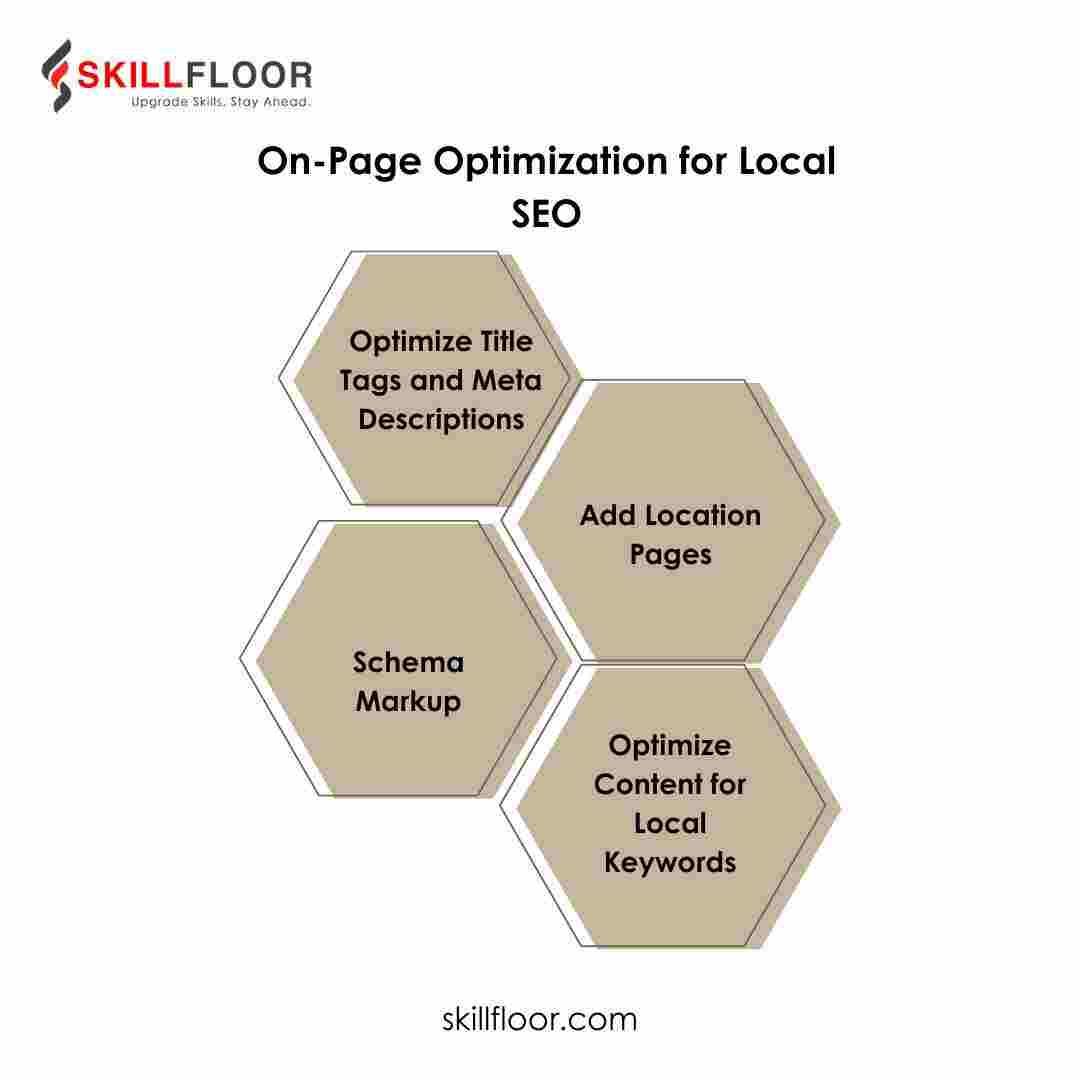How to Optimize Your Website for Local SEO
Learn how to optimize your website for local SEO. Discover effective strategies and tips to improve local search rankings and attract more customers.

Are you looking to enhance your online presence and attract more customers from your local area? Understanding and implementing effective strategies for local SEO can significantly boost your business's visibility in location-based searches. The goal of local search engine optimization is to make your website more visible in local search results when users in your area look for the goods or services you provide. You may raise your chances of showing up in Google's highly sought-after local pack results by carefully choosing local keywords, producing content tailored to your specific area, and setting up your Google Business Profile for mobile. Creating local backlinks and maintaining accurate NAP (Name, Address, Phone number) information across directories are also important. Whether you manage a small business or an important company, becoming an expert in local SEO can have a significant impact on your online visibility and client acquisition. To expand your understanding and successfully apply these strategies, go through our guide and think about looking into SEO courses.
Understanding Local SEO
Let's define local SEO first before diving into the specifics of optimizing your website for local search engine optimization. Making your company visible for geographically related searches, particularly in Google's local search results, is the main goal of local SEO. Consider it assisting locals in your community in finding your company with ease when they look for goods or services you provide.
Local SEO isn't limited to physical establishments. Optimizing your website for local search engine optimization can increase targeted traffic to your organization, even if you only provide services in a particular area. Every action you take, like creating a Google My Business account and obtaining local citations, improves your local presence.
Setting Up Your Local SEO Foundation
Make sure you have regular online citations, optimize your Google My Business listing, and carry out in-depth local keyword research to build a powerful local presence.
Listing on Google My Business (GMB):
A well-optimized GMB listing is the cornerstone of any local SEO campaign. Make sure your business information, including your name, address, phone number (NAP), and business hours, is correct by claiming your listing on Google My Business. This is the first step towards appearing in local search results and on Google Maps.
Local Citations and Listings:
Verify that all online directories and citation sites, such as Yelp, Bing Places, and Apple Maps, have the same information about your company. Accuracy is essential since inconsistent information might mislead search engines and potential clients.
Research Local Keywords:
Determine the keywords that local clients use to find companies similar to yours. You can find these keywords with the help of programs like Moz's Keyword Explorer and Google's Keyword Planner. Naturally, include these local keywords in the content of your website.
On-Page Optimization for Local SEO
Use local keywords in the meta tags and content of your website to make it more search engine friendly for users based on their location. This involves optimizing title tags, creating location-specific webpages, and utilizing schema markup to increase exposure in local search results.

- Optimize Title Tags and Meta Descriptions: Make sure that your title tags and meta descriptions contain your main local keyword. For instance, you may be titled "Best Bakery in Brooklyn - Freshly Baked Delights Every Day" if you own a bakery in Brooklyn.
- Add Location Pages: Make distinct location pages for each of your company's locations if it has more than one. These pages ought to provide exclusive information for every location, such as contact details, maps, and reviews from previous patrons.
- Optimize Content for Local Keywords: Incorporate relevant local keywords into the text of your website. For instance, include references to your area or city in the descriptions of your products, services, and blog entries. This makes your company more visible to search engines for local queries.
- Schema Markup: Give your website a local business schema markup. In addition to helping search engines comprehend the specifics of your company, this can increase your presence in local search results.
Technical SEO for Local Optimization
Ensuring that your website's technical features such as mobile friendliness, quick loading times, and secure HTTPS connections are optimized to improve visibility and user experience for local searches is known as technical SEO for local optimization.
- Mobile Optimization: Make sure your website is optimized for mobile devices. Having a responsive design that looks fantastic on smartphones and tablets is essential because a significant portion of local searches are done on mobile devices.
- Quick Loading Times: Make your website load as quickly as possible. Search engines reward websites that load quickly because they offer a better user experience. You can find areas for improvement with the aid of tools like Google PageSpeed Insights.
- Secure Website: Ensure that your website is secure by using HTTPS. Users have greater faith in safe websites, and Google takes site security into account when ranking websites.
Building Local Links and Online Reputation
Build high-quality local backlinks and satisfying customer reviews to raise your company's profile and exposure in local search results.
- Local Backlinks: To obtain backlinks from other businesses' websites, cultivate connections with bloggers, influencers, and other local businesses. Your local SEO efforts might be greatly enhanced by high-quality local backlinks.
- Encourage Customer Reviews: Good reviews enhance your online reputation and have an impact on your local search engine rating on sites like Google, Yelp, and Facebook. Invite pleased clients to write reviews, and then provide them with a timely, kind response.
- Local Content Creation: Produce material that speaks to your local audience on a local level. These may be blog entries about neighborhood happenings, recommendations for things to do nearby, or even interviews with notable locals. Creating interesting local content improves your SEO and draws in local visitors.
Tracking and Measuring Local SEO Performance
To constantly improve and enhance your local SEO strategy, regularly assess your local search rankings, traffic, and user engagement using tools like Google Analytics, Search Console, and local SEO tracking tools.
- Make use of Google Analytics: Use Google Analytics to monitor user activity and website traffic. Observe patterns in the sources of your traffic and how visitors are interacting with your website.
- Google Search Console: Track the effectiveness of your searches and find the terms that bring visitors to your website. Google Search Console gives you information about how frequently your website shows up in local searches as well as which search terms work best.
- Track Local ranks: To keep tabs on your local search ranks, use resources like SEMrush, BrightLocal, and Moz Local. With the use of these tools, you can better understand your company's local search ranking and identify areas for improvement.
Your company's presence in location-based searches can be greatly increased by implementing efficient local SEO techniques. You may improve your local internet presence by improving your Google My Business listing, building dependable local citations, and concentrating on local keywords and backlinks. Keep a close eye on your tactics and make necessary adjustments to stay competitive and draw in more local clients.




























































